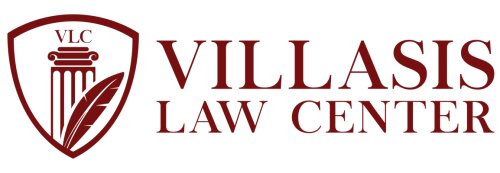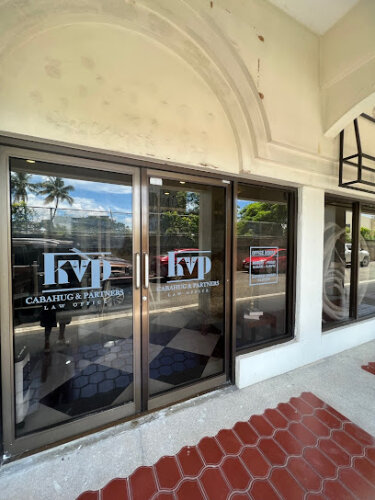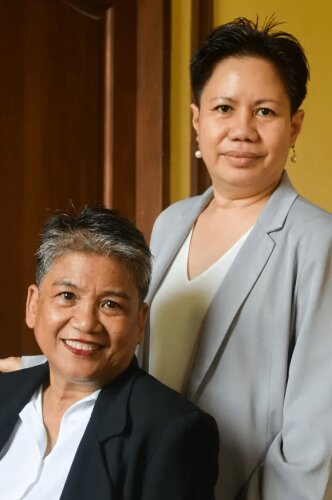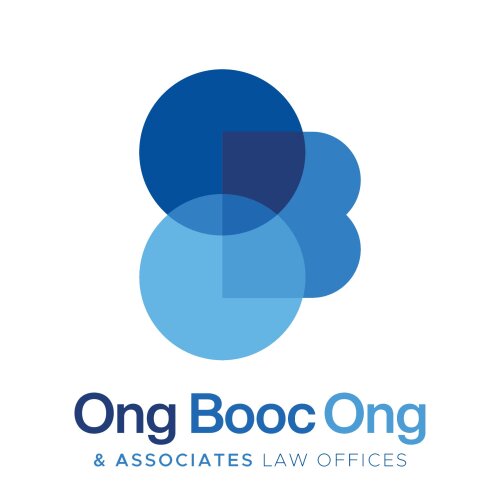Best Collaborative Law Lawyers in Philippines
Share your needs with us, get contacted by law firms.
Free. Takes 2 min.
Free Guide to Hiring a Family Lawyer
Or refine your search by selecting a city:
List of the best lawyers in Philippines

Dagsaan Monterde Castillo Law and Notary Public (DMC LAW)
15 minutes Free ConsultationAbout Collaborative Law in the Philippines
Collaborative Law is a legal process in the Philippines that provides an alternative to traditional litigation for resolving disputes, particularly in matters related to family law and business partnerships. It is a voluntary and private dispute resolution process in which parties aim to reach an amicable settlement with the help of collaboratively trained lawyers. The goal is to avoid adversarial court cases and to foster mutually beneficial solutions for both parties involved. This approach is gaining traction in the Philippines as it emphasizes cooperation, openness, and respect.
Why You May Need a Lawyer
Individuals may require legal assistance in Collaborative Law for various reasons, including:
- Divorce or Annulment: Resolving issues related to property division, child custody, and support without going to court.
- Business Disputes: Negotiating the terms of business dissolution or restructuring with less conflict.
- Family Dispute Resolution: Preventing or addressing conflicts related to family-owned businesses or inheritance matters.
- Co-parenting Agreements: Developing comprehensive parenting plans and custody arrangements prioritizing children's needs.
- Land and Property Disputes: Facilitating negotiations related to land ownership or rental agreements.
Local Laws Overview
In the Philippines, Collaborative Law operates alongside the judicial system but emphasizes resolving disputes through cooperation rather than litigation. Key aspects of local laws relevant to Collaborative Law include:
- Family Code of the Philippines: Governs marriage, property relations, and parent-child relationships, reinforcing alternatives like collaborative law for amicable settlements.
- Alternative Dispute Resolution Act of 2004: Supports the use of voluntary settlement processes, including collaborative law, in legal disputes.
- Rules of Court: Offer some flexibility and provisions that facilitate mediated and collaborative resolutions before proceeding to trial.
Frequently Asked Questions
What is Collaborative Law?
Collaborative Law involves a legal process that allows parties in a dispute to work towards a mutually agreed resolution, aided by collaborative lawyers, without resorting to litigation.
How does Collaborative Law differ from mediation?
While both strive to avoid court, collaborative law involves parties and their lawyers working together to resolve disputes, whereas mediation includes a neutral third-party mediator.
What types of disputes can be resolved using Collaborative Law?
Collaborative law is particularly effective in family disputes like divorce, child custody, and property division, as well as business disputes and certain contractual matters.
Can I choose Collaborative Law if my partner or business associate disagrees?
Both parties must agree to use a collaborative process for it to proceed. Without mutual consent, other legal avenues need to be explored.
What qualifications should a collaborative lawyer possess?
Collaborative lawyers should have specific training in collaborative law techniques and extensive experience in negotiation and dispute resolution.
Is the collaborative agreement legally binding?
Agreements reached through the collaborative law process can be drafted into legally binding contracts or court orders, ensuring enforceability.
Are the discussions held in collaborative law confidential?
Yes, the process is confidential, and details cannot be disclosed outside the collaborative setting without permission from all parties involved.
How long does the collaborative law process typically take?
The duration varies greatly depending on the complexity of the dispute and the willingness of parties to reach a settlement, often completed faster than traditional litigation.
What happens if the collaborative process fails?
If the process doesn't result in a settlement, parties may pursue litigation, although the collaborative lawyers involved in initial negotiations typically cannot represent them in court.
How do I start the collaborative law process?
Initiate by consulting with a qualified collaborative lawyer who can guide you and discuss whether this method suits your particular dispute.
Additional Resources
For further guidance and support, consider reaching out to the following:
- Integrated Bar of the Philippines (IBP): Offers resources on finding and connecting with collaborative lawyers.
- The Philippine Justice Center: Provides information on alternative dispute resolution methods, including collaborative law.
- Department of Justice: Offers resources and mediation services that align with collaborative law principles.
Next Steps
If you need legal assistance in collaborative law, consider these steps:
- Research and Consult: Look for a lawyer experienced in collaborative practice. Initial consultations can help determine if this process suits your needs.
- Understand Your Options: Discuss with your lawyer the potential benefits and risks, and ensure full awareness of all aspects related to your dispute.
- Engagement Agreement: After deciding on collaborative law, sign a participation agreement committing to the process and hiring collaborative professionals.
- Regular Meetings: Engage in scheduled meetings with participating parties and professionals to work out settlement details.
- Drafting Settlement: Once achieved, collaborate with your lawyer to draft a binding agreement, which can be recognized by courts if needed.
Lawzana helps you find the best lawyers and law firms in Philippines through a curated and pre-screened list of qualified legal professionals. Our platform offers rankings and detailed profiles of attorneys and law firms, allowing you to compare based on practice areas, including Collaborative Law, experience, and client feedback.
Each profile includes a description of the firm's areas of practice, client reviews, team members and partners, year of establishment, spoken languages, office locations, contact information, social media presence, and any published articles or resources. Most firms on our platform speak English and are experienced in both local and international legal matters.
Get a quote from top-rated law firms in Philippines — quickly, securely, and without unnecessary hassle.
Disclaimer:
The information provided on this page is for general informational purposes only and does not constitute legal advice. While we strive to ensure the accuracy and relevance of the content, legal information may change over time, and interpretations of the law can vary. You should always consult with a qualified legal professional for advice specific to your situation.
We disclaim all liability for actions taken or not taken based on the content of this page. If you believe any information is incorrect or outdated, please contact us, and we will review and update it where appropriate.
Browse collaborative law law firms by city in Philippines
Refine your search by selecting a city.















